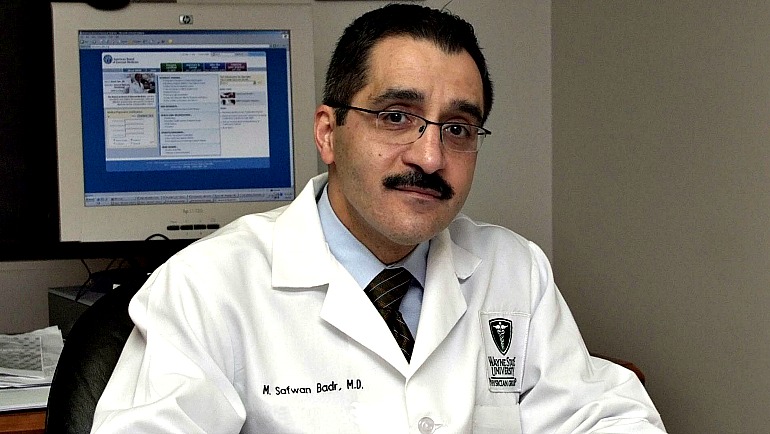
Sleep-disordered breathing, or SDB, is a common disorder, afflicting at least 25 million adults in the United States. Similarly, more than one-third of adult Americans do not get sufficient sleep. Both conditions contribute to adverse health consequences, including daytime sleepiness and hypertension. Unfortunately, improving outcomes for patients with SDB remains an elusive goal despite the use of positive-airway pressure, or PAP, therapy. Insufficient sleep may be a confounding factor that could explain the failure to demonstrate improved outcomes with PAP therapy.
A team of nationally renowned investigators, led by Safwan Badr, M.D., M.B.A., chair and the Liborio Tranchida, M.D., Endowed Professor of Internal Medicine at Wayne State University, and Jennifer Martin, Ph.D., professor of Medicine at the David Geffen School of Medicine at the University of California – Los Angeles, will use a new five-year, $3,479,967 grant from the National Institutes of Health to investigate improved management of patients with SDB. The two are co-principal investigators of the study, “Improving outcomes for patients with SDB and insufficient sleep.”
“This proposal is based on the premise that insufficient sleep contributes to sleepiness in patients with SDB, and may account for the variability in response to positive-pressure airway therapy in patients with sleepiness and mild SDB,” Dr. Badr said. “The objective is to determine the treatment that results in the greatest benefit to patients in terms of daytime sleepiness, blood pressure and endothelial function.”
Short sleep duration, common among American adults, Dr. Badr explained, is a key limitation of existing studies on the treatment of mild SDB. The study will advance understanding of the effects of mild SDB and insufficient sleep on daytime symptoms such as sleepiness by testing two interventions, a cognitive-behavioral sleep-time extension program, or STE, compared to positive airway pressure therapy. STE consists of a four-session program that includes behavioral, cognitive and motivation enhancement strategies to increase sleep duration.
“Insufficient sleep is a national epidemic,” Dr. Badr said. “The results of this study will have significant clinical implications in the management of patients with SDB and insufficient sleep.”
Co-investigators at WSU include James Rowley, M.D., professor of Internal Medicine, Division of Pulmonary and Critical Care and Sleep Medicine; Susmita Chowdhuri, M.D., professor of Internal Medicine, Division of Pulmonary and Critical Care and Sleep Medicine; Philip Levy, M..D., M.P.H., the Edward S. Thomas Endowed Professor of Emergency Medicine, and assistant vice president of Translational Science and Clinical Research Innovation for WSU; Cheri McGowan, Ph.D., adjunct assistant professor of Emergency Medicine; and Samiran Ghosh, Ph.D., associate professor of Family Medicine and Public Health Sciences. Cathy Alessi, M.D., professor of Medicine and chief of the Division of Geriatrics, is a co-investigator at UCLA.
The grant is 1R01HL146059-01A1 from the National Heart, Lung and Blood Institute of the NIH.
